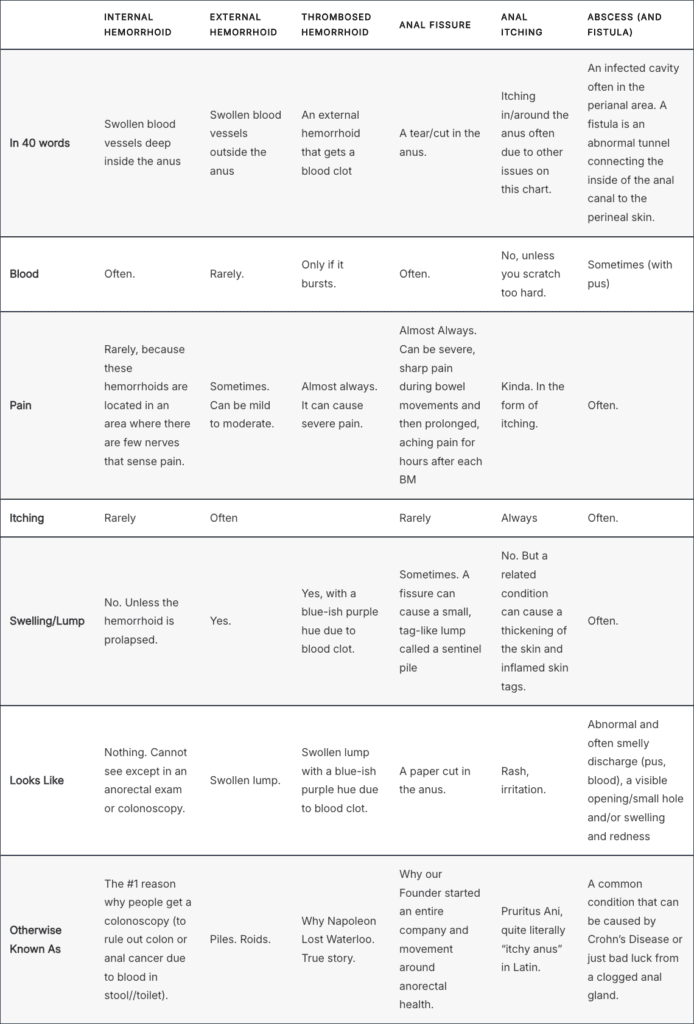Written by: Betty Staff
Medically reviewed by: Ritha Belizaire, MD
Table of Content
—————————————————-
We know what it’s like to be uncomfortable below the belt – awful. You are not alone – while most people never talk about these intimate issues, they are shockingly common. 80% of women will have anorectal, perineal or vulvar conditions in their lifetime!* And none are more wrapped in stigma than issues of the back door.
At Betty Health, we believe understanding what you are dealing with is the critical first step to your healing. These are some of the most common anorectal conditions and their related symptoms:
Most Common Anorectal Conditions and Symptoms

How to Get Relief from Your Anorectal Conditions
When you are dealing with some sort of anorectal discomfort but you aren’t sure what, this is what we suggest might help:
- Reach out to your doctor! Usually your family physician is the best fit (unless you are already seeing a colorectal specialist). While whatever you are dealing with might be treatable at home, it’s always better to be cautious and rule out serious issues. And if you are experiencing bleeding of any kind, it is absolutely imperative that you seek medical attention.
- Don’t assume that you have issues with your hemorrhoids. While problematic hemorrhoids are the #1 reason for anorectal discomfort, there are other conditions that are commonly mistaken for hemorrhoids and require different treatment – including anal fissures.
- Take stock of your symptoms and ideally record them for a few days. That will be helpful in getting a full picture of your situation.
- Find a hand mirror or compact and take a look where the sun don’t shine. We know, we know, this can be uncomfortable for some people but you may be able to visualize something that will help you get the care you need. If you are able, take a clean finger and palpate (touch) the area. Does your skin around your anus/perineum look normal/healthy? Or is there redness, bumps, rashes or even what might look like a tear?
Most of these anorectal conditions are generally treatable, but symptoms should not be ignored, as some may require medical intervention to prevent complications. Regardless of what issue you might be dealing with while you are waiting for a doctor’s care or if you are trying to deal with it at home, there are simple things you can do to optimize your anorectal health and perhaps help you heal naturally. Learn all about what you can do to optimize your anorectal health here.
CITATIONS:
- *Survey of 530 American women
- https://pmc.ncbi.nlm.nih.gov/articles/PMC4076876/
- DOI: 10.3748/wjg.v24.i42.4821

